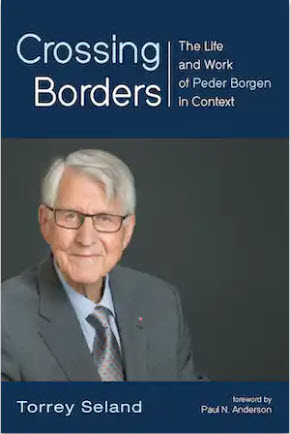The Studia Philonica Annual 2022 is on its way from the press these days and is full of good reading stuff. Here is a list of its contents:
ARTICLES
Sean A. Adams, Treatise Order in the Greek Codices of Philo of Alexandria: Lists, Pinakes, and Manuscripts 1-31
Justin M. Rogers, Atheism in Philo of Alexandria 33-54
Giulia Guidara, Philon comme témoignage des présocratiques:
Mentions, citations et interprétations dans le Corpus Philonicum 55-92
Colten Cheuk-Yin Yam, Philo’s Knowledge of Physicians and Medicine in His Later Roman Writings 93-112
Markéta Dudziková, Seeing and Not Seeing in the Darkness: Philo of Alexandria and Gregory of Nyssa’s Exegeses of Exod 20:21 113-139
Jeffrey M. Hubbard, Philo’s Proselytes and “Paul within Judaism” 141-161
Per Jarle Bekken, The Jewish Debate on Gen 15:6 and Abraham’s Adequate Reward: Fresh Light on Romans 4:2–5 in the Jewish Context 163-188.
The follows a BIBLIOGRAPHY SECTION, containing an annotated bibliography of the works on Philo published in 2019, and then: a BOOK REVIEW SECTION dealing with:
Benjamin Schliesser, Jan Rüggemeier, Thomas J. Kraus, and
Jörg Frey, eds., Alexandria: Hub of the Hellenistic World
Reviewed by David T. Runia 263-66.
Bengt Alexanderson, Philon d’Alexandrie: Critique de texte et
interprétation. Reviewed by James R. Royse 266-69.
Ellen Birnbaum and John Dillon, Philo: On the Life of Abraham
Reviewed by Martina Böhm 269-73.
Joan E. Taylor and David M. Hay, Philo of Alexandria On the Contem-
plative Life: Introduction, Translation, and Commentary. Reviewed by Jutta Leonhardt-Balzer 273-75.
Ludovica De Luca, Il Dio architetto di Filone di Alessandria (De opificio mundi 17–20) Reviewed by Heleen Keizer 276-78
Philo van Alexandrië, De schepping van de wereld. Ingeleid, vertaald en toegelicht door Albert-Kees Geljon
Reviewed by Riemer Roukema 278-80.
John-Paul Harper, Paul and Philo on the Politics of the Land, Jerusalem,
and Temple. Reviewed by Gregory E. Sterling 280-83.
Sébastien Morlet and Olivier Munnich, eds., Les études philoniennes: Regards sur cinquante ans de recherche. Reviewed by Justin M. Rogers 283-89.
Carl R. Holladay, Hellenistic Jewish Literature and the New Testament: Collected Essays. Reviewed by Justin M. Rogers 289-93.
Peder Borgen, Illuminations by Philo of Alexandria: Selected Studies on Interpretation in Philo, Paul and the Revelation of John.
Reviewed by Gregory E. Sterling 293-98.
Alan Taylor Farnes, Scott D. Mackie and David T. Runia, eds.,
Ancient Texts, Papyri, and Manuscripts: Studies in Honor of James R. Royse
Reviewed by Brent Nongbri 298-301.
Ze’ev Strauss, Aufhellung des Judentums im Platonismus: Zu den jüdisch-platonischen Quellen des deutschen Idealismus, dargestellt anhand von Hegels Auseinandersetzung mit Philon von Alexandria. Reviewed by Benjamin Pollock 301-305
The volume ends with some News and Notes, including words of memorial of 5 Philo scholars.

